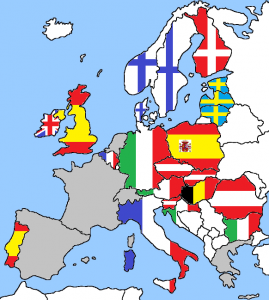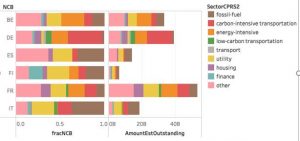Véronique Goossens wordt binnenkort de hoofdeconoom van Belfius. Ze is vooral bekend als presentatrice bij Kanaal Z.
Volgens Wikipedia is een hoofdeconoom verantwoordelijk voor de uitvoering van financieel en economisch onderzoek en advies. Op het eerste zicht is het dan ook wat vreemd dat Goossens geen diploma economie op zak heeft.
Nochtans heeft Belfius een goede zaak gedaan. De echte job van een hoofdeconoom is namelijk om in de media te komen.
Hoofdeconoom is een marketingfunctie
De hoofdeconoom heeft weinig of geen invloed op de strategie van zijn of haar werkgever. Banken hebben een hoofdeconoom om dezelfde reden dat ze sportwedstrijden of liefdadigheidsinstellingen sponsoren.
Goede hoofdeconomen slagen er in regelmatig om regelmatig in de krant of op de radio en televisie te komen. Zo bouwen ze een vertrouwensband op met het publiek, dat de naam van hun werkgever koppelt aan degelijkheid.
Het is geen toeval dat BNP Paribas Fortis Koen De Leus wegplukte bij KBC. De man wordt regelmatig geïnterviewd. Misschien heeft Goossens’ voorganger Geert Gielens grote intellectuele en organisatorische capaciteiten, maar het verschil in aantal Twitter–volgers tussen de twee spreekt boekdelen. Vandaar exit Gielens, enter Goossens.
Tenslotte gratis advies voor mijn voormalige werkgever KBC: jullie huidige hoofdeconoom is waardeloos vanuit mediastandpunt. (Als je nu nadenkt over wie dat is, bewijs je mijn punt). Jammer, want ik ken een onontgonnen toptalent bij de bank…


